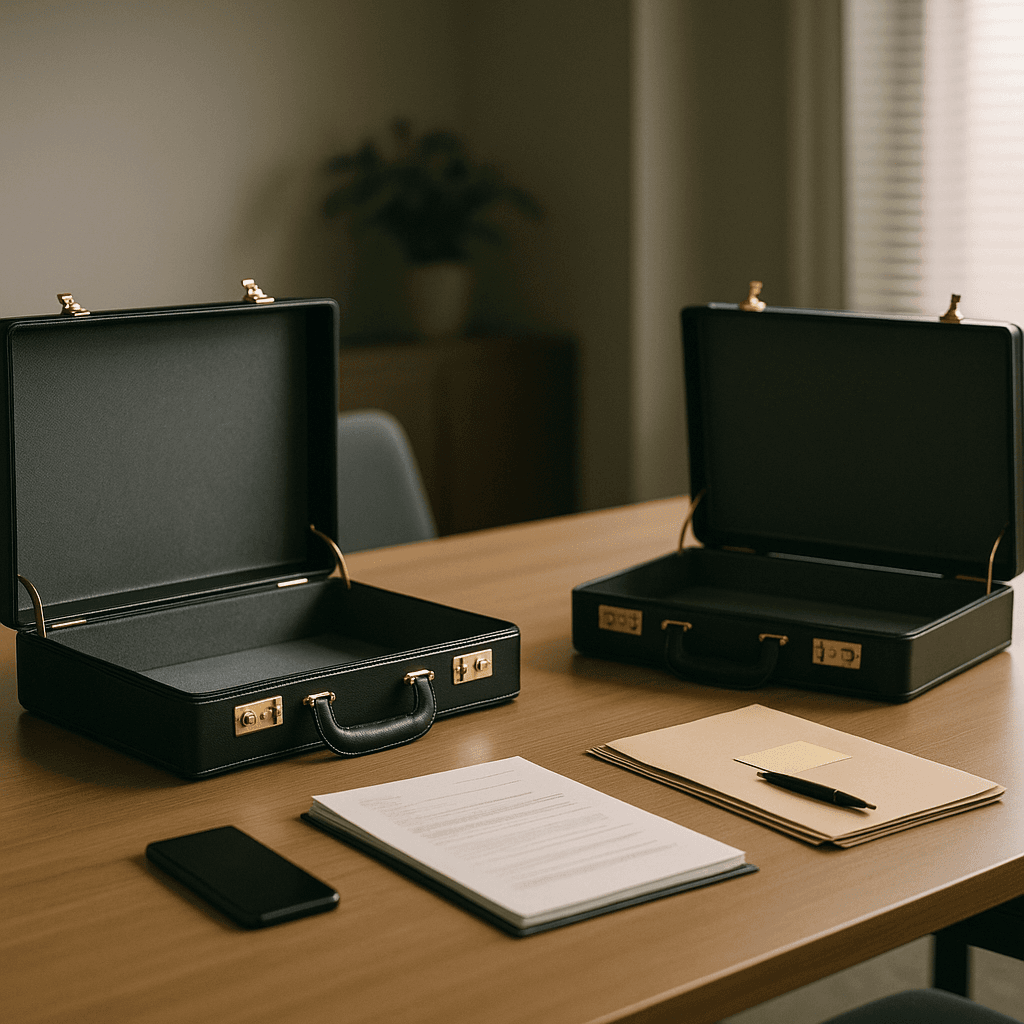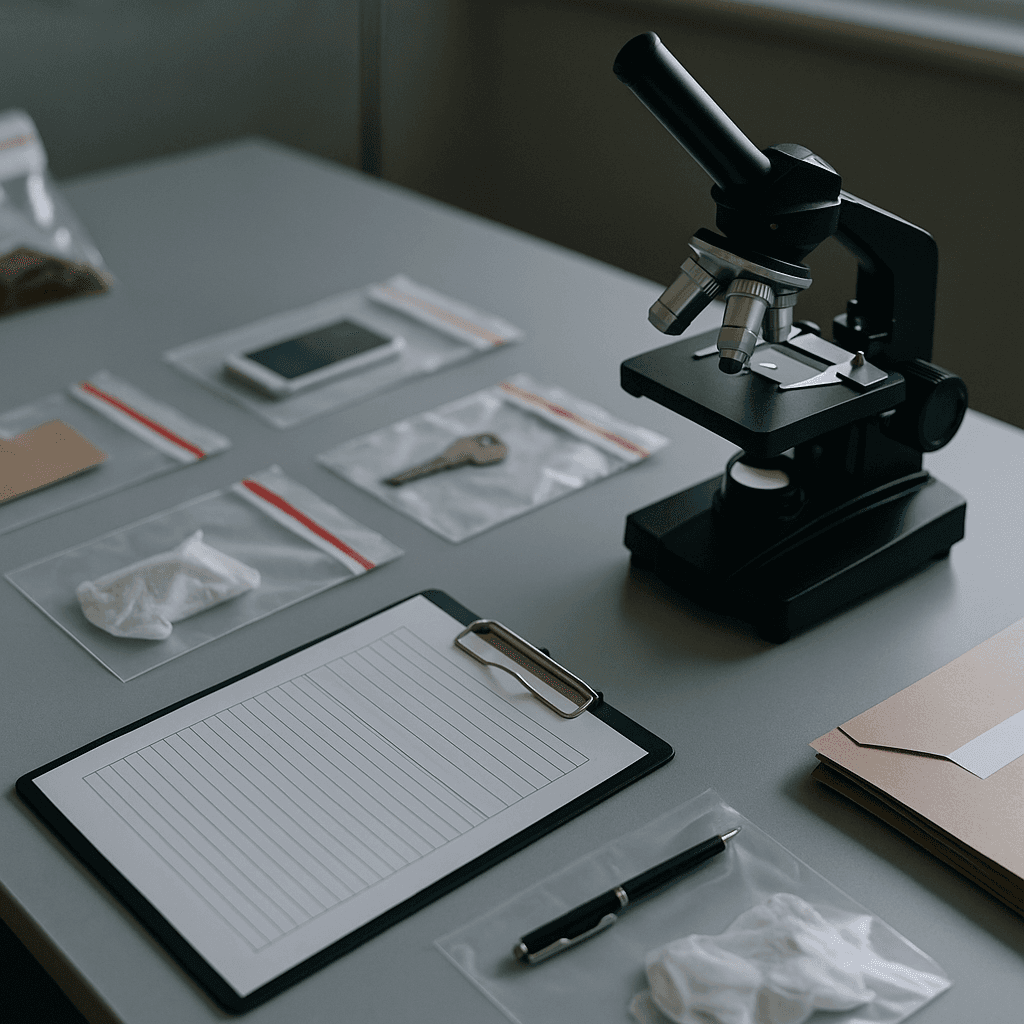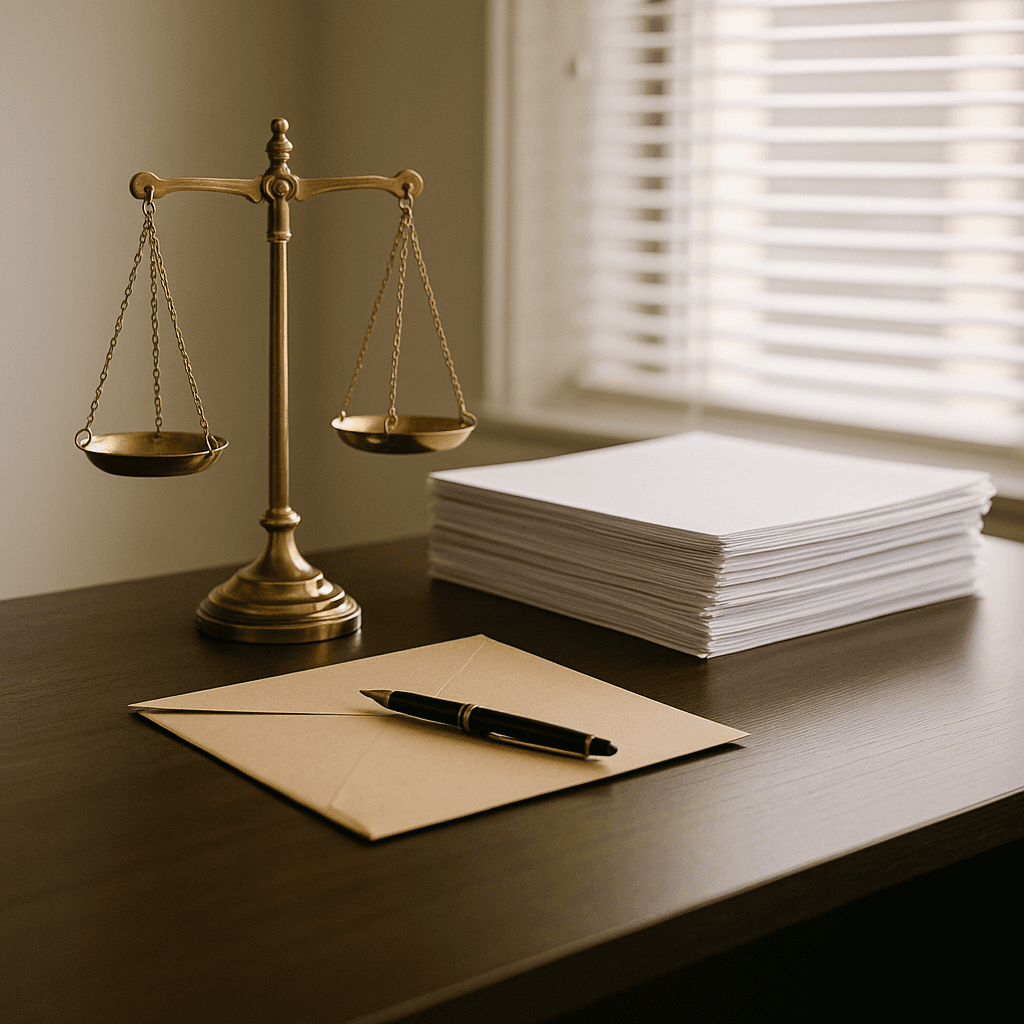
When Should You Switch to a Different Injury Lawyer?

Knowing When It's Time for a Change
Choosing the right attorney after an accident is one of the most important decisions you'll make in your recovery journey. However, not every lawyer-client relationship is a perfect fit. Sometimes, despite your best efforts, you may realize that your current representation isn't meeting your expectations. Whether it's poor communication, lack of progress, or a sense that your case isn't being handled effectively, recognizing when to switch attorneys can make all the difference in the outcome of your claim.
Switching to a new personal injury lawyer doesn't mean starting over from scratch—it means taking control of your case and ensuring it receives the attention and effort it deserves. Understanding what to expect from your legal representation can help you identify the warning signs that it might be time for a change.
Communication and Trust: The Foundation of Representation
The attorney-client relationship should be built on trust, transparency, and regular communication. If your lawyer rarely returns calls, fails to explain the legal process, or keeps you in the dark about updates, it can create unnecessary stress and confusion. You deserve to feel informed and supported throughout your case.
In a healthy relationship, your lawyer should provide clear expectations from the start—what information they need, how often you'll receive updates, and what timelines look like. Setting this tone early in your partnership helps avoid misunderstandings later. That's why understanding what happens during your first meeting with a personal injury attorney is so important; it's the moment when mutual expectations are established and a foundation for trust is built. A productive first consultation, like the one outlined in what to expect during your first meeting with a personal injury attorney, should leave you feeling informed and confident about your next steps.
Signs Your Case May Not Be Getting Enough Attention
Another red flag is when your case seems to be stagnant. While personal injury claims can take time, long periods of silence or unexplained delays may indicate inattention or disorganization. You should never feel as though your case has been forgotten or pushed aside.
A dedicated attorney keeps your claim moving forward by gathering evidence, managing deadlines, and keeping communication open. Strong evidence collection, in particular, is what keeps a case alive. Detailed medical records, accident reports, and witness statements are essential for proving negligence and demonstrating damages. If your lawyer hasn't prioritized gathering this information, it can significantly weaken your position. Evidence is often what determines whether a case succeeds or fails, underscoring the importance of having representation that understands the weight of documentation and proof. This principle aligns with evidence that can make or break your claim, where thorough preparation defines success.
Medical Documentation: A Crucial Part of Your Case
One of the strongest forms of evidence in a personal injury claim is medical documentation. Your lawyer should work closely with you and your healthcare providers to ensure every injury, diagnosis, and treatment is properly recorded. These documents serve as the foundation for calculating damages, proving causation, and negotiating fair compensation.
If your attorney has failed to request or review your medical records, that's a sign of inadequate representation. Without proper documentation, your case can lose credibility with insurers or in court. An experienced lawyer knows that medical records don't just show the physical effects of an injury—they tell the story of how the accident changed your life.
Accurate and consistent medical documentation can make the difference between a fair settlement and a lowball offer. The importance of this evidence is emphasized in the importance of medical documentation in your claim, where medical accuracy directly impacts case value.
Delays and Mismanagement During Discovery
If your case has entered litigation but you're frustrated by unexplained delays or poor preparation, the issue may lie in how the discovery phase is being handled. Discovery is the stage where both parties exchange information and evidence to prepare for trial. It's a complex but crucial process that requires organization, attention to detail, and proactive communication between your attorney and opposing counsel.
A lawyer who fails to request essential documents, schedule depositions, or respond to discovery requests promptly risks damaging your case. This phase is often where settlements are reached or negotiations gain traction. If your lawyer seems disorganized or unprepared, it may be time to seek someone who can manage the process effectively.
Discovery can determine the entire direction of your case, as discussed in what happens during discovery in a personal injury lawsuit. Proper handling during this stage ensures that all relevant facts are uncovered and your case remains strong.
Misaligned Strategies or Unclear Goals
Sometimes, the issue isn't neglect but a lack of shared vision. If your lawyer's strategy doesn't align with your goals—whether you prefer a quick settlement or are prepared to go to trial—it's important to communicate those differences early. However, if discussions about direction consistently leave you feeling unheard, it may be a sign that your attorney isn't the right fit.
Your lawyer should take the time to explain the reasoning behind every step of the process, from filing the claim to negotiating with insurance adjusters. Clear communication about expectations is vital, especially regarding payment and legal fees. Understanding how contingency fees work ensures transparency in your financial relationship. Attorneys who work on this structure only get paid if they win your case, meaning their success is directly tied to yours—a fair and motivating system for both parties. The client-first philosophy behind this model is explained in how contingency fees work – and why they benefit clients.
Switching Lawyers Without Hurting Your Case
If you've decided to make a change, the transition doesn't have to disrupt your case. New attorneys can step in, review the existing file, and continue building upon what's already been done. It's important to communicate your concerns professionally and request that your case file be transferred promptly. Most personal injury attorneys are familiar with the process and will coordinate directly with your former lawyer to ensure a smooth handoff.
You should never feel trapped in a relationship that isn't serving your best interests. Remember that your case—and your recovery—deserve attention, expertise, and commitment. If your instincts tell you something isn't right, trust them.
Choosing Representation That Works for You
The right attorney not only understands the law but also understands you. They'll keep you informed, treat your case with care, and fight for fair compensation while respecting your goals and timeline. Whether it's gathering evidence, organizing medical documentation, managing discovery, or communicating effectively, your lawyer should act as your advocate and partner in every sense.
Switching lawyers can feel like a difficult decision, but sometimes it's the best step toward achieving justice. A law firm that listens, explains, and acts with transparency can give you renewed confidence in your case. After all, having the right advocate by your side can make all the difference between frustration and success.
Blog Posts:

The Role of Expert Witnesses in Injury Litigation
Why Expert Witnesses Matter in Personal Injury Cases In personal injury litigation, facts alone are often not enough. While evidence like medical records, photographs, and witness statements paint part of the picture, juries and insurance companies frequently need context and explanation to understand the full scope of an injury and its impact. This is where expert witnesses play a pivotal role. Expert witnesses are professionals—often doctors, engineers, economists, or accident reconstruction specialists—who provide testimony based on their specialized knowledge. Their objective is not to advocate for one side but to clarify complex issues that require professional interpretation. In many cases, their opinions help bridge the gap between evidence and understanding, making them critical to achieving fair compensation.

How Insurance Companies Evaluate Injury Claims
How the Evaluation Process Really Works When you file a personal injury claim, the insurance company begins a process that is anything but simple. Behind every offer or denial, there's a calculated evaluation designed to protect their bottom line. Insurers use data-driven methods, past claim outcomes, and internal guidelines to assess how much—if anything—they believe your case is worth. The goal of the insurance adjuster is straightforward: to settle your claim for as little as possible while closing the file quickly. They'll review your medical records, accident details, and even statements you've made to determine liability and damages. The more organized and detailed your claim presentation, the harder it is for them to undervalue it.

The Dangers of Handling a Personal Injury Case Without Legal Help
Understanding What's at Stake After an accident, it's natural to want to resolve things quickly. Medical bills begin piling up, your work may be disrupted, and insurance adjusters often seem eager to "help." Many people believe they can handle their personal injury claim on their own—especially if the situation seems straightforward. But personal injury law is complex, and even minor missteps can lead to significant financial loss. Without professional guidance, you may underestimate your claim's value, miss critical deadlines, or make statements that insurers later use against you. The legal process is designed to protect both sides, and insurance companies have experienced professionals working to limit payouts. Without an equally skilled advocate on your side, you're at a clear disadvantage. That's why consulting a personal injury lawyer early in the process is often the difference between fair compensation and a costly mistake.

How Contingency Fees Work – and Why They Benefit Clients
Understanding Contingency Fees in Personal Injury Cases For many accident victims, the idea of hiring an attorney can seem intimidating—especially when they imagine expensive upfront costs or hourly rates. But in personal injury law, most attorneys work on a contingency fee basis, a structure designed to make legal representation accessible regardless of a client's financial situation. Under a contingency fee agreement, you don't pay your attorney unless your case is successful. Their payment is a percentage of the settlement or verdict you receive, meaning they only get paid when you do. This system aligns the attorney's interests with yours: both parties are motivated to achieve the best possible outcome.
Get an agent on the line in seconds
Responsive
Legal Assistance
Our personal injury attorneys advocate for the funds necessary to cover bills, secure medical treatment, recoup lost wages, and provide compensation for your pain and suffering.
Are you facing unfair treatment from the insurance company?
Do you know the value of your case?
Is the insurance company asserting that the accident is your responsibility?

We'll get back to you ASAP.
Get Your Free Consultation
You Pay Nothing Unless We Recover Compensation For You
